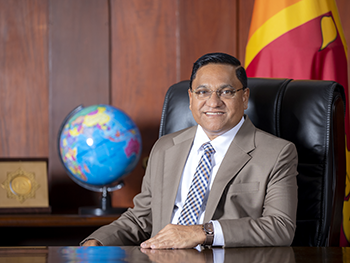Sri Lanka's Rapid Development Hinges on Unified Consensus
Let’s Seize Opportunities for Future Generations
Today's Actions Shape Tomorrow's Judgments
Prioritizing Personal Ambitions Could Derail Nation's Progress
- Says the President delivering a special statement in Parliament
President Ranil Wickremesinghe emphasized that Sri Lanka has the potential to become a developed country in the world if we unite and reach a consensus. He reiterated the importance of a shared agreement for the country's progress.
He urged everyone not to overlook the chance to contribute to the future generation of the nation and cautioned that prioritizing personal ambitions over the country's interests during this challenging period could lead to significant destruction.
President Ranil Wickremesinghe made these remarks while delivering a special statement in the Parliament today (09).
President Ranil Wickremesinghe highlighted that our present actions will define our future reputation. He questioned whether someone would be remembered as a person who betrayed the country or as part of a group known for their love and dedication to it. He emphasized the importance of making this determination.
The President emphasized that forming a unified consensus is not solely the responsibility of public representatives in Parliament, but also falls upon religious leaders, trade unions, professionals, the business community, non-governmental organizations, various opinion leaders, individuals with social influence, and every citizen.
Following is the full statement made by Hon. President Ranil Wickremesinghe in Parliament on 09.05.2024






































